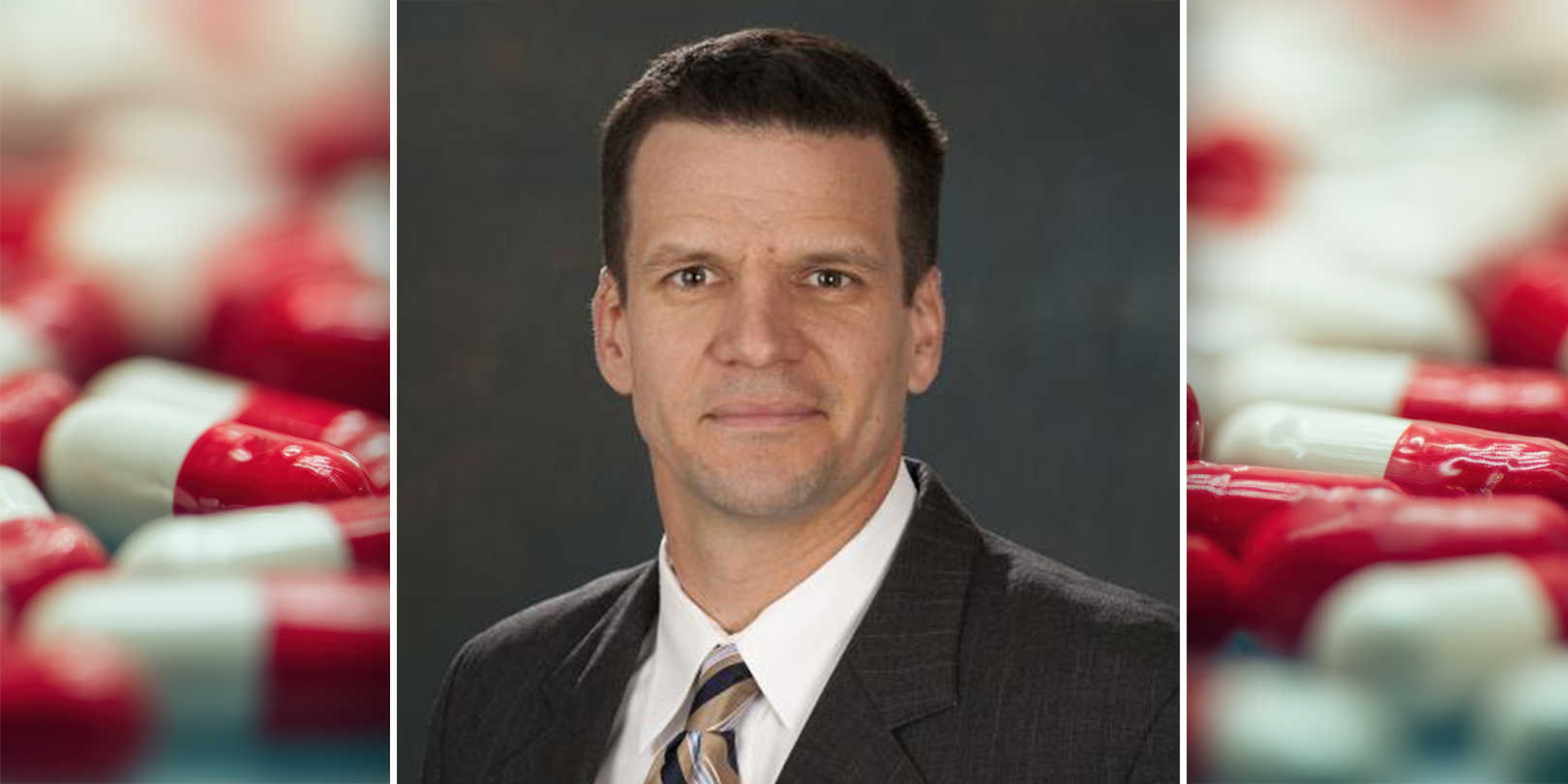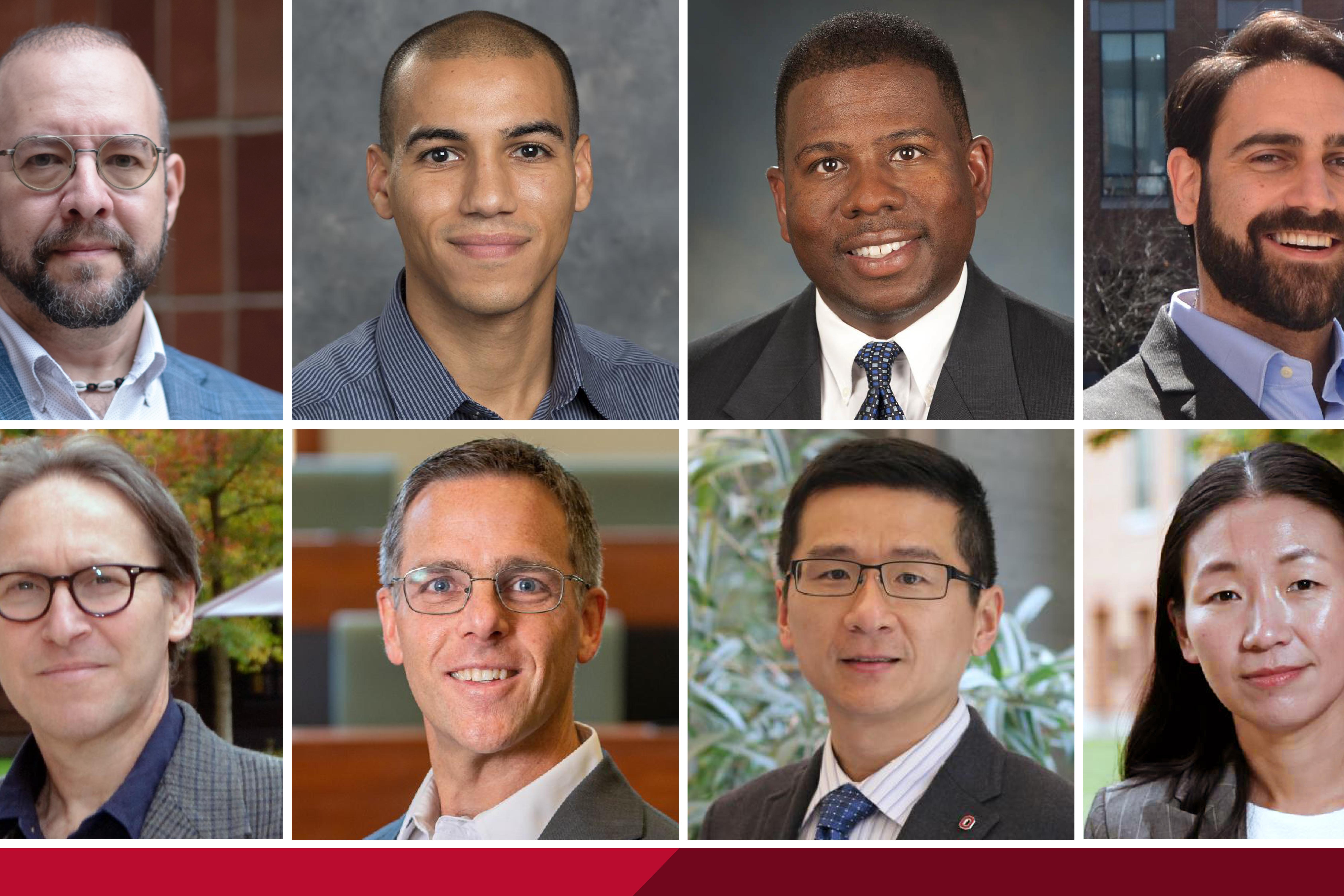Fisher Research and Insights
Forefront

January 5, 2022
Max M. Fisher College of Business
Max M. Fisher College of Business
Climate change disclosures driving awareness and action among companies and investors
What can we learn from companies’ climate change disclosures? A lot, actually. Research from Assistant Professor of Operations Christian Blanco reveals how companies’ understanding of their environmental impact has improved over the past 20 years.

December 29, 2021
Marketplace
Marketplace
The economics of New Year's resolutions in the time of omicron
Resolutions are made every year. But this year, COVID-19 is helping shape people's annual fresh starts. Yet again. The omicron variant adds more complications to those resolutions, says Assistant Professor of Marketing Grant Donnelly.

December 28, 2021
CNET
CNET
'Hustle culture' is facing an existential crisis with millennials
Millennials are wondering whether finding meaning in their job amid the "hustle culture" is a fruitless pursuit. Selin Malkoc, associate professor of marketing, says this culture and planning can bleed into our leisure pursuits, which is counterintuitive to the purpose of relaxation.

December 14, 2021
Real Vision Finance
Real Vision Finance
AI in the board room
When it comes to Environmental, Social and Governance (ESG) investing, too many focus on the environmental and social, when often the governance can be even more impactful on the future of the company and the return on an investment. Isil Erel, the David A. Rismiller Chair in Finance at Fisher, discusses how governance is changing and how AI is affecting that change.

December 8, 2021
The Wall Street Journal
The Wall Street Journal
Who read what: Political figures share their favorite books of 2021
In a list of political figures' favorite books from 2021, John B. Taylor, former undersecretary of the Treasury for international affairs and a professor of economics at Stanford, recommended "The Economist’s Craft," authored by Michael Weisbach, the Ralph Kurtz Chair in Finance at Fisher. The book "shows how to understand economics in a way that’s entertaining for anyone who has ever been a student, or simply likes to read, write or talk economics."

December 1, 2021
Forbes
Forbes
Why the SEC’s stance on bitcoin ETFs may need to change
In approving Bitcoin futures ETFs but rejecting spot price competitors, many observers feel that the SEC is being contradictory in is rulings. One concern is price manipulation, as explored in a paper by Assistant Professor of Finance Amin Shams and John M. Griffin, of the University of Texas at Austin that concluded that about half of bitcoin's rise to a total market value of $326 billion was due to the influence of a manipulation scheme.

November 29, 2021
Financial Times
Financial Times
What influences cryptocurrency values?
While the term ‘number go up’ was in circulation elsewhere before the 2009 creation of bitcoin, let alone the more recent boom, it points to a fundamental question at the heart of a $2tn-plus industry: what, and who, influences the value of crypto? Bitcoin’s connections to other cryptocurrencies have also raised concerns about its pricing, which was explored in a paper authored by Amin Shams, assistant professor of finance, and a colleague.

November 26, 2021
WOSU
WOSU
Holiday shopping season gets underway amid pandemic, supply chain woes
WOSU's Matthew Rand speaks with Terry Esper, associate professor of logistics, about how the holiday shopping season is shaping up.

November 19, 2021
The Conversation
The Conversation
Four reasons why museums aren't cashing in on NFTs yet
Can non-fungible tokens generate the revenue many museums sorely need? Brian Mittendorf, the Fisher Designated Professor in Accounting, and a colleague outline four primary reasons why museums have failed to turn the NFT craze into a financial windfall.

November 18, 2021
INFORMS
INFORMS
The granular nature of large institutional investors
New research by Itzhak Ben-David, the Neil Klatskin Chair in Finance and Real Estate, and his colleagues empirically study the impact of large institutional ownership on stock prices in the U.S. market.

November 16, 2021
Marketplace
Marketplace
Using “queuing theory” to understand supply chain logjams
Professor of Logistics Keely Croxton explains how “queuing theory” — the mathematical study of waiting lines — can help explain the ongoing supply chain issues plaguing businesses across the U.S.

November 12, 2021
Max M. Fisher College of Business
Max M. Fisher College of Business
Bringing fintech to the forefront at Ohio State
The future of business is in financial technology (fintech). See how Fisher and partners in the community and across the university are working together to establish Ohio State as a leader in fintech research, education and practice.

November 9, 2021
The National Center for the Middle Market
The National Center for the Middle Market
The National Center for the Middle Market adds Visa as new sponsor
Multi-year agreement will further advance and elevate the understanding of the U.S. middle market.

November 5, 2021
The Boston Globe
The Boston Globe
The ‘empathy advantage’ of great women leaders
A study by Associate Professor Management and Human Resources Jasmine Hue, published in The Journal of Applied Psychology, determined that bosses who were attentive to employees’ emotional needs helped workers stay engaged during the pandemic. Hu specializes in “servant leadership,” an empathy-driven management style uniquely suited to modern realities. While servant leaders can be any gender, the style fits with “female leaders’ stereotypical characteristics of being nurturing, relationship-oriented, and tending to emotional needs,” she says.

November 5, 2021
Inside Higher Ed
Inside Higher Ed
In praise of academic collegiality
Many people in higher education would benefit substantially if they learned to become better colleagues. Michael S. Weisbach, the Ralph Kurtz Chair in Finance, explores exactly what it means to be collegial in academia.

November 3, 2021
Ohio State News
Ohio State News
Why sugary drink taxes aren’t effective — and how to change that
Do taxes on sugary drinks actually improve public health by reducing consumption? New marketing research by Assistant Professor Grant Donnelly shows that these taxes are only effective if one marketing tactic is employed — price tags that mention that consumers are paying a tax.

November 1, 2021
Ohio State News
Ohio State News
Women are more reluctant than men to ask for deadline extensions
New research by Assistant Professor of Marketing Grant Donnelly finds that a concern about burdening others is a major reason why women are less likely than men to ask for more time to complete projects with adjustable deadlines at work or school.

October 30, 2021
The Wall Street Journal
The Wall Street Journal
How men and women treat deadlines in the workplace differently
Assistant Professor of Marketing and Logistics Grant Donnelly explores differences in how men and women handle workplace deadlines. Women are less likely to ask for extensions. That hurts women — and the companies they work for.

October 27, 2021
The Ohio State University
The Ohio State University
How employers can keep experienced older workers from retiring
How can companies retain experienced older workers who may be considering retirement? New research by Associate Professor of Management and Human Resources Kaifeng Jiang suggests companies adapt their work environments for these individuals to include autonomy, participation in decision-making, information sharing, training opportunities and good compensation.

October 21, 2021
BBC
BBC
How to decline invitations without bruising feelings
Rejecting an invitation can lead to hurt feelings. But new research from Assistant Professor of Marketing Grant Donnelly suggests choosing your excuse carefully can help smooth the process.

October 21, 2021
Business Insider
Business Insider
Researchers have found why some people are fans of ultra-rich individuals like Jeff Bezos or Elon Musk, but not billionaires in general
Research by Assistant Professor of Marketing Jesse Walker and his co-authors finds that when billionaires were viewed as a group, a study's participants were more likely to be supportive of redistribution measures, such as higher taxes.

October 20, 2021
CNBC
CNBC
Why so many people hate the super-rich — but still love Elon Musk and Bill Gates, according to psychology
A new psychological study from Assistant Professor of Marketing Jesse Walker and his colleagues unpacks why people love individual billionaires like Bill Gates, Warren Buffett or Elon Musk — but can't stand them as a group.

October 20, 2021
Harvard Business Review
Harvard Business Review
The five fronts of digital transformation in the middle market
How can mid-sized companies embrace, adopt and keep pace with digital transformation and emerging technologies? As part of a collaboration with Harvard Business Review, Anil Makhija, dean and John W. Berry, Sr.

October 20, 2021
The Ohio State University
The Ohio State University
FinTech @ Ohio State and Beyond conference takes place Oct. 27-28
Thanks to a generous gift from Fintech71, The Ohio State University will offer the first in a university-wide effort to boost the region's FinTech ecosystem through the FinTech @ Ohio State and Beyond conference. The virtual event will be held October 27-28.

October 19, 2021
MarketWatch
MarketWatch
Here's why people might hate billionaires, but still love Jeff Bezos or Elon Musk
New research from Assistant Professor of Marketing Jesse Walker shows that people are much more tolerant of individual rich people than they are of the wealthy as a whole.


